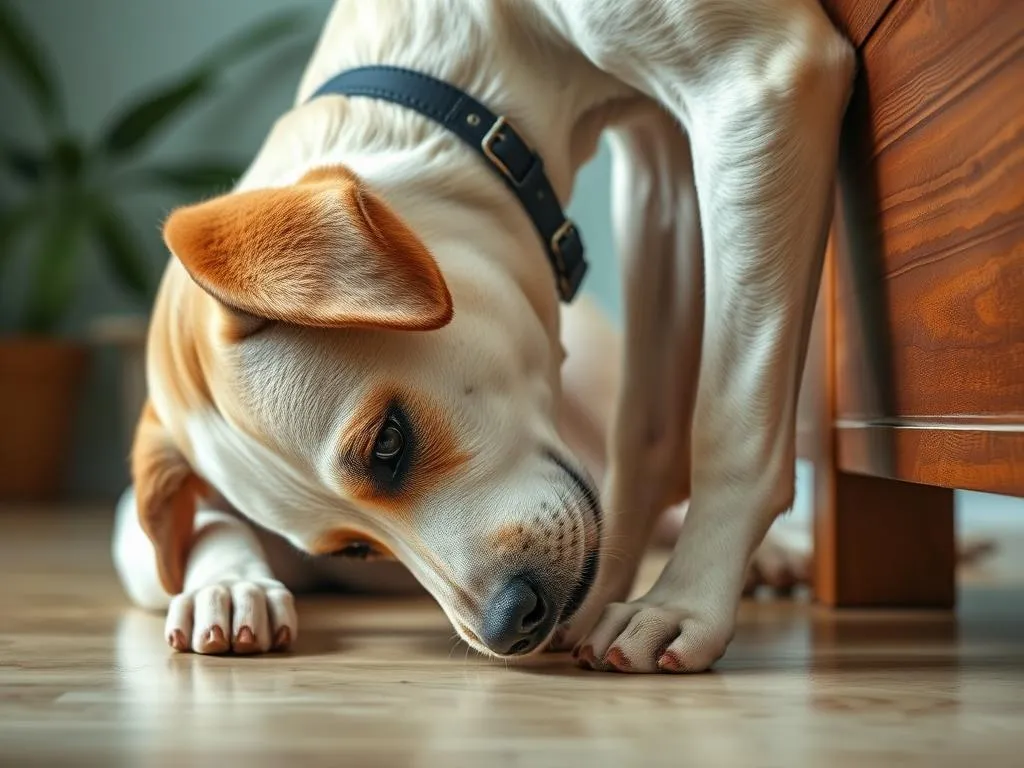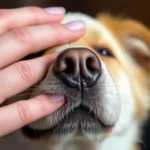
Understanding your dog’s behavior is crucial for any pet owner. Dogs communicate through their actions, and observing these behaviors can help you provide better care and a happier environment. One behavior that often perplexes dog owners is licking the floor. This article delves into why dogs lick the floor, exploring the various reasons behind this behavior, its implications, and how to address it effectively.
Understanding Canine Behavior
The Basics of Dog Behavior
Canine behavior is rooted in instinct and social dynamics. Dogs are pack animals, and their behaviors often reflect their needs for social interaction, safety, and exploration. Understanding these instincts is vital for pet owners, as it allows them to interpret their dog’s actions and needs more accurately.
Common Dog Behaviors
Beyond licking, dogs exhibit various behaviors like barking, chewing, and digging, which can indicate different underlying issues. For instance, excessive barking might signal boredom or a need for attention, while chewing could indicate anxiety or a need for dental care. Recognizing these behaviors as communication is essential for addressing health or environmental problems.
Reasons Why Dogs Lick the Floor
Natural Instincts
One of the primary reasons dogs lick the floor stems from their natural instincts. Dogs are descendants of scavengers, and their ancestors often licked surfaces to gather information about their environment. For many dogs today, licking the floor is a way to explore their surroundings, tapping into that innate curiosity.
Sensory Exploration
Dogs experience the world predominantly through their sense of smell and taste. Licking the floor allows them to gather sensory information about their environment. If your dog is licking a specific area repeatedly, it may be because they are detecting a scent or residue that intrigues them. This behavior is a form of exploration and can be entirely normal.
Attention-Seeking Behavior
Sometimes, dogs lick the floor as a way to gain attention from their owners. If you notice your dog engaging in this behavior and immediately react—whether positively or negatively—they may perceive it as a successful strategy to get your attention. Positive reinforcement, such as petting or talking to them, can inadvertently encourage this licking behavior.
Stress and Anxiety
Stress and anxiety can significantly impact a dog’s behavior. Licking can become a coping mechanism for dogs experiencing anxiety or stress. If your dog licks the floor excessively, it may be a sign that they are overwhelmed or uncertain. Look for other signs of anxiety, such as excessive pacing, whining, or changes in eating habits.
Medical Issues
Excessive floor licking may also indicate underlying medical concerns. Conditions such as gastrointestinal issues, allergies, or dental problems can lead to this behavior. If your dog’s licking is persistent and excessive, it’s essential to consult a veterinarian to rule out any health issues.
Contextual Factors Influencing Floor Licking
Environment
Changes in a dog’s environment can trigger licking behavior. New pets, moving to a different location, or alterations in routine can lead to anxiety, and dogs may lick the floor as a response. Providing a stable environment and gradually introducing changes can help mitigate this behavior.
Diet and Nutrition
Your dog’s diet also plays a critical role in their behaviors. Food allergies or nutritional deficiencies can lead to discomfort, prompting floor licking. If you suspect that your dog’s licking is related to their diet, consider consulting a veterinarian for dietary recommendations or allergy testing.
Age and Breed Considerations
Age and breed can influence how often a dog licks the floor. Puppies tend to explore their world through licking more than older dogs. Certain breeds may also be predisposed to licking due to their individual temperaments or needs. Understanding these factors can help you manage and interpret your dog’s licking behavior more effectively.
How to Address Excessive Floor Licking
Positive Reinforcement Techniques
If your dog’s floor licking becomes excessive, consider utilizing positive reinforcement techniques to redirect their behavior. Instead of scolding them, encourage alternative behaviors, such as providing toys or engaging them in play. Rewarding them with treats or attention when they choose these alternatives can help reduce licking over time.
Creating a Stress-Free Environment
To address licking behavior rooted in anxiety, creating a stress-free environment is crucial. Ensure your dog has a safe space where they can retreat when feeling overwhelmed. Establishing a consistent routine for feeding, walking, and playtime can also help alleviate anxiety and promote a sense of security.
Dietary Adjustments
If licking is linked to dietary issues, it may be time to evaluate and adjust your dog’s nutrition. Consult with your veterinarian to discuss potential food allergies or deficiencies. Sometimes, switching to a higher-quality dog food or incorporating supplements can help reduce licking behaviors associated with dietary discomfort.
When to Consult a Veterinarian
Recognizing when to seek professional help is essential. If your dog’s licking behavior is excessive or accompanied by other concerning symptoms—such as vomiting, diarrhea, or lethargy—it’s crucial to consult a veterinarian. They can perform diagnostic tests to identify any underlying medical conditions and provide appropriate treatment.
Conclusion
Understanding why dogs lick the floor is essential for any dog owner. This behavior can stem from a variety of reasons, including natural instincts, sensory exploration, attention-seeking, stress, and medical issues. By observing your dog’s behavior and considering environmental, dietary, and emotional factors, you can better address excessive licking.
Being proactive in understanding and addressing your dog’s licking behavior will not only improve their well-being but also strengthen the bond between you and your furry friend. If you notice unusual or persistent licking, don’t hesitate to consult with a veterinarian to ensure your dog remains healthy and happy.









